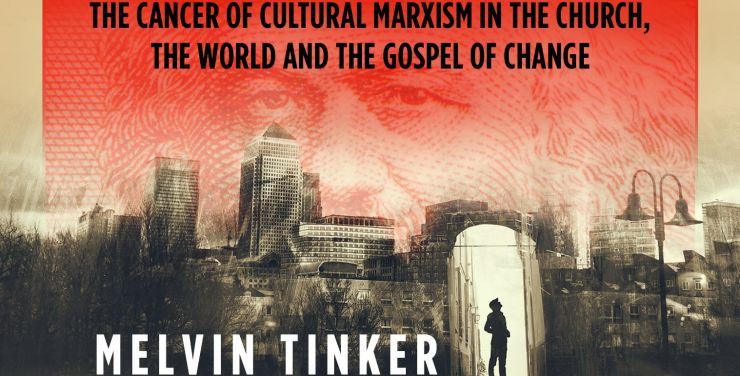Review: That Hideous Strength: How the West was Lost

In the recently-published Bulletin from Affinity’s Social Issues Team, this article by Norman Wells reviews a recent book by Melvin Tinker – That Hideous Strength: How the West was Lost, subtitled, The Cancer of Cultural Marxism in the Church, the World and the Gospel of Change
In this challenging and powerful volume, Melvin Tinker has some penetrating insights into the nature of the spiritual warfare that is raging today in the West. As the title suggests, he is indebted to the observations of C S Lewis in his work That Hideous Strength (1945), and he also provides an illuminating exposition of the biblical account of the Tower of Babel (Genesis 11).
In his ‘tall story about devilry’, Lewis made a ‘serious point’ about the capability of an intellectual elite of ideologues to change the way great swathes of a population consider what constitutes ‘common sense’ and determine which views are permissible and which ideas are passé, or even dangerous. By means of fiction, Lewis described an outlook that derides the supernatural and embraces naturalistic materialism. That Hideous Strength lays bare the character of scientism, a wholesale philosophical movement which, as a matter of principle and not evidence, leaves no room for God.
Tinker argues that in Cultural Marxism, there is a new manifestation of that ‘hideous strength’, which is equally powerful and just as dangerous as the one that Lewis described and which exhibits the same characteristics and aims. He traces the origins of this ideology back to the Frankfurt School and notes the influence of leading figures such as Herbert Marcuse, Antonio Gramsci, Max Horkheimer, Eric Fromm and Wilhelm Reich.
Andrew Sandlin, Founder and President of the Center for Christian Leadership in California, regards the aim of Cultural Marxism as the liberation of humanity from social institutions and conditions which prevent individuals from realising their full self, desires and aspirations. Among the social institutions and conditions within the sights of the social revolutionaries are the family, the church, business, traditional views, habits and authorities. The term ‘Cultural Marxism’ is rarely heard in common parlance, but the language employed to promote its ideas is ubiquitous, in words such as ‘equality’, ‘liberation’ and ‘tolerance’. Tinker refers to the adoption of a ‘new totalitarian-tolerance’ masquerading as a new freedom, with the aim of extinguishing the old tolerance, together with the people and institutions that espouse it, such as the church. It is Cultural Marxism that lies behind the political correctness of our age.
Tinker argues that vast sections of the Christian church have colluded with the new totalitarianism, either actively, by buying into Cultural Marxism (theological liberalism), or passively, by ignoring it and maintaining an exclusive commitment to ‘preaching the Word’ (evangelical pietism). Yet we cannot afford either to embrace Cultural Marxism or to bury our heads in the sand. This all-pervading ideology is the machine that is stifling freedom of speech and thought in society and providing the philosophical matrix for much of the gender agenda. It must therefore be seen for what it is: a particular manifestation of the principalities and powers seeking to dethrone God and destroy man. In this, Tinker sees a parallel with the Tower of Babel, a similar corporate rebellion which set itself up against the Creator and his cultural mandate.
So how are we to respond to the challenge of Cultural Marxism? Tinker urges Christians and churches to commend God’s truth, engage with the culture, and courageously refuse and reject the spirit of the age. He observes that the church is easily drawn to one of two extremes: (a) cognitive cultural resistance – not wanting to upset or offend the powers-that-be, it lives in isolation from the world, with occasional evangelistic forays; or (b) cognitive and cultural adaptation – allowing the church to be seduced by the culture, so that it merely reflects back to the world its own values and ideas in a thinly-veiled Christian dress. In this connection, he cites some particularly poignant words from Reinhold Niebuhr: ‘Whenever religion feels completely at home in the world, it is the salt which has lost its savour. If it sacrifices the strategy of renouncing the world it has no strategy by which it may convict the world of sin.’
Christians must therefore have the courage to go against the flow and maintain their distinctiveness in both belief and behaviour. The Cultural Marxists will want us to keep our heads down and our mouths shut, but, as Martin Luther King remarked, there comes a point where silence is betrayal. Silence must therefore end and Christian believers must employ God’s methods of prayer, proclamation and persuasion.
In his Foreword, Dan Strange helpfully notes that from beginning to end, the Bible teaches that there is an antithesis between believers and unbelievers and a God-given enmity between those who worship Christ and those who serve idols. Christians are therefore inevitably and unavoidably involved in a war of competing worldviews and fundamentally different ways of interpreting the world. But, as Tinker trenchantly observes, in order to properly wield the sword of the Spirit, pastors need to educate their congregations about the culture in which they live and expose the influence and manifestation of ‘that hideous strength’.
Tinker notes that:
[T]he diabolical drama which is being played out in our schools, colleges, work places and government needs to be placed within the bigger biblical drama of God’s action in the world through his Son, the Lord Jesus Christ, and his people who are caught up in it, living as strangers and exiles, and called to stand against the world in order to win the world. And so ultimately we can’t help but be optimistic…
In the short-term, he acknowledges that such Christian optimism does not preclude the possibility that we may enter a new dark age before the final triumph. But the ultimate victory of the Lord and his people is assured. In a particularly illuminating section, Tinker draws attention to the chiastic structure of Genesis 11:1-9, depicting a reversal of mankind’s plans. The centre point of the chiasm is found in the words: ‘the Lord came down’ (11:5). It is the actions of the Lord, and not the actions of man, that will prove decisive. The Lord will subvert all man’s attempts to sabotage his purposes, and the kingdoms of this world shall become the kingdoms of our Lord and of his Christ, and he shall reign for ever and ever (Revelation 11: 15).
Even so, come Lord Jesus!
Norman Wells
Norman Wells is a graduate of London Seminary and has served as director of the Family Education Trust since 2004. He is also a director of the Coalition for Marriage.
(This article was originally published in the Affinity Social Issues Bulletin for November 2018. The whole edition can be found at www.affinity.org.uk)
The Social Issues Team publishes The Bulletin three times each year, containing information about current issues relevant to churches and Christians.
A PDF of this article is available to download here.
The whole issue of the latest Bulletin may be downloaded here:
Stay connected with our monthly update
Sign up to receive the latest news from Affinity and our members, delivered straight to your inbox once a month.



